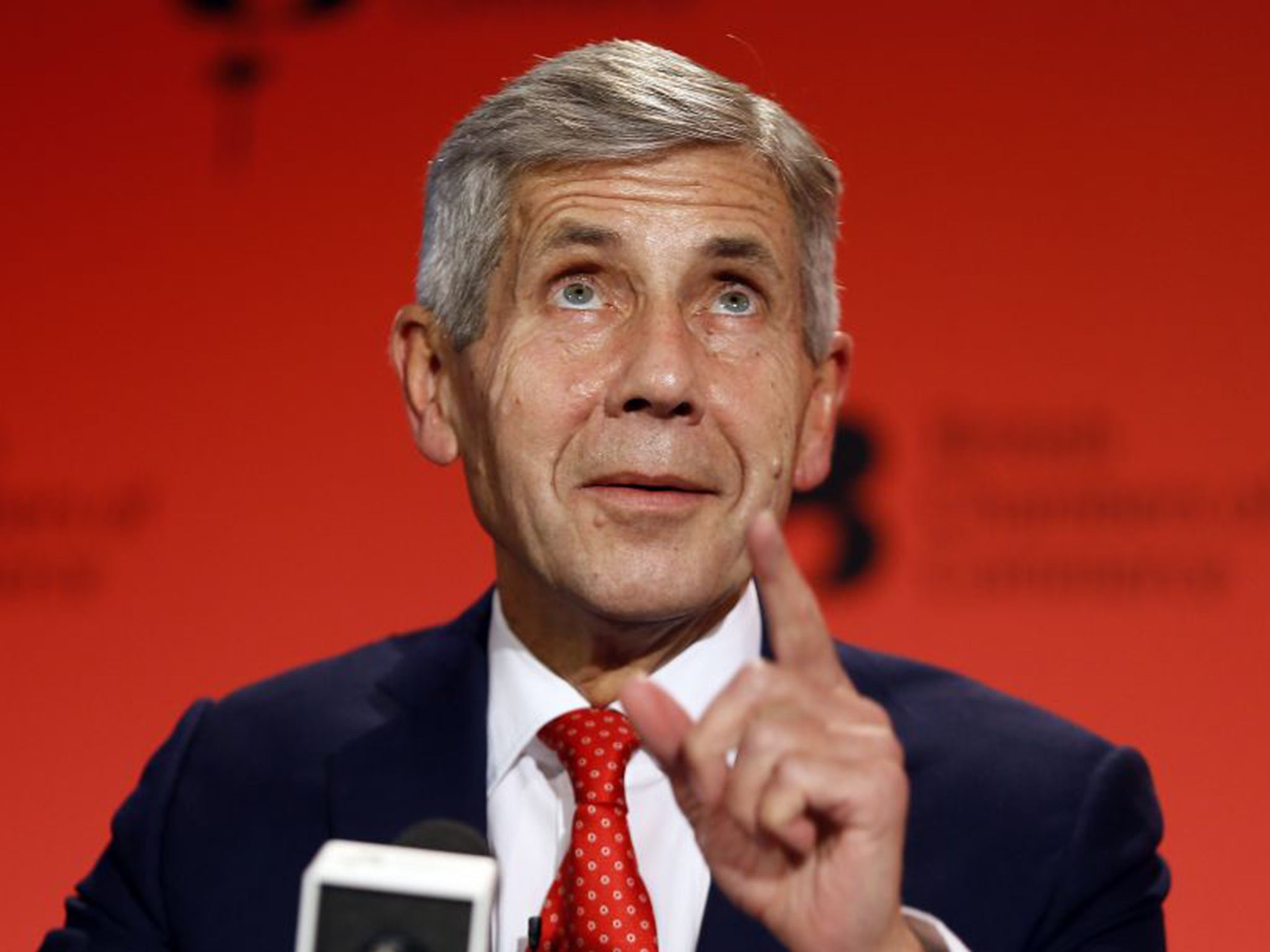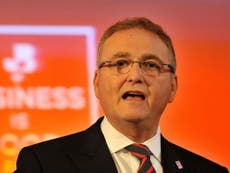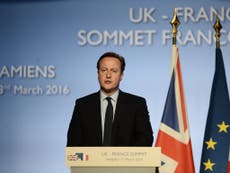EU referendum: Let’s hear it for a man who told the truth about a Brexit
Stuart Rose was vilified for his ‘gaffe’ about wages rising in the event of Britain leaving the EU. He should have been applauded


Hero of the week was Stuart Rose, the former boss of Marks & Spencer and former Eurosceptic who now leads the Stronger In campaign. When Wes Streeting, the latest MP to enjoy the title of Next Labour Prime Minister, asked him a straight question, Lord Rose gave a straight answer.
Streeting, a member of the Treasury select committee, asked him whether, if Britain left the EU, the end of free movement of workers “could see an increase in wages for low-skilled workers in the UK”.
Lord Rose replied: “If you are short of labour the price will, frankly, go up. So yes. That’s not necessarily a good thing.”
What a refreshing exchange that was. And how depressing that so many journalists seized on it as a “gaffe” and wrote about it only in relation to how it would affect the horse-race of the referendum campaign. Politicians on the Leave side of the argument trumpeted the embarrassment of their opponent, while those on the Remain side confirmed that they were indeed embarrassed by forcing Lord Rose to issue a statement “clarifying” his comments.
Sometimes, politicians and journalists conspire in what John Birt and Peter Jay once called a bias against understanding.
Lord Rose’s answer was right and honest, and could have been the start of a discussion about the complex costs and benefits of EU membership. Indeed, he started that discussion after saying that Brexit would lead to higher wages, but by then no one was listening. He went on to say that free movement works both ways: “At the moment we are seeing one-way traffic because our economy is growing and the European economy has had a very tough time. There will probably be a point in five or 10 years’ time when it goes the other way and we will want to go the other way and we will all want to work in Europe. So let’s not shut the door before we see that we want that opportunity for our children and grandchildren.”
He had, in fact, touched on a “traditional Labour” argument that is almost never expressed, namely that UK wages would be more equal if the supply of low-skilled labour from the rest of the EU were restricted. Since the EU expanded in 2004, the pro-EU Labour Party has shied away from talking about the effect of free movement on wages. Jeremy Corbyn hasn’t talked about it, despite his anti-EU past, because his supporters are overwhelmingly pro-EU.
This is a pity, because it is an important debate. Lord Rose is right, but the effect of immigration on wages may be small and short-lived. Jonathan Portes, the former Treasury economist, estimates from a recent Bank of England study that, in the eight years after 2004, immigration cut the wages of UK-born semi and unskilled workers by about 1 per cent. Compare that with, for example, next month’s 7 per cent rise in the UK minimum wage to £7.20 an hour.
What is more, if we left the EU, the boost to low wages might be only temporary. In the long run we might all, including the low paid, be worse off.
Conventional economics suggests that free movement, like free trade, is in everyone’s interest. The problem is the social dislocation caused by migration, just as the resistance to free trade comes from sectors of the economy most disrupted by it. Lord Rose was trying to say that lower wages in the short term would be outweighed by the benefits of EU membership in the long run.
He also tried to point out that immigration from outside the EU is still higher than that from within the EU.
Instead of engaging with these important questions, Lord Rose’s opponents shouted “Gotcha!” and went back to accusing David Cameron of running “Project Fear”.
Project Fear? It was Iain Duncan Smith who said staying in would leave the door open to Paris-style terrorist attacks, and Priti Patel who compared the EU to the Titanic. What the Outers won’t do is say that leaving has its costs, but that they think the benefits outweigh them.
The Prime Minister is quite right to point out that the Outers won’t say what they want our relationship with the EU to be if we leave. I think most of those intending to vote to leave mean to exclude Britain from free movement of EU workers, which they think depresses wages. There is a trade-off. They know that free movement is a condition of full access to the single European market. They accept that ending free movement would mean we would have to pay tariffs on our exports to the EU. Tariffs are currently charged at an average of 3 per cent on imports from outside the EU. For most leavers, weighing costs and benefits, that is a price worth paying.
However, Boris Johnson, who has put himself forward as a candidate to be the prime minister who negotiates the terms of our exit from the EU, has not said where he stands on these points. Perhaps, on The Andrew Marr Show, he will follow Lord Rose’s example and give a straight answer to some straight questions.





Join our commenting forum
Join thought-provoking conversations, follow other Independent readers and see their replies